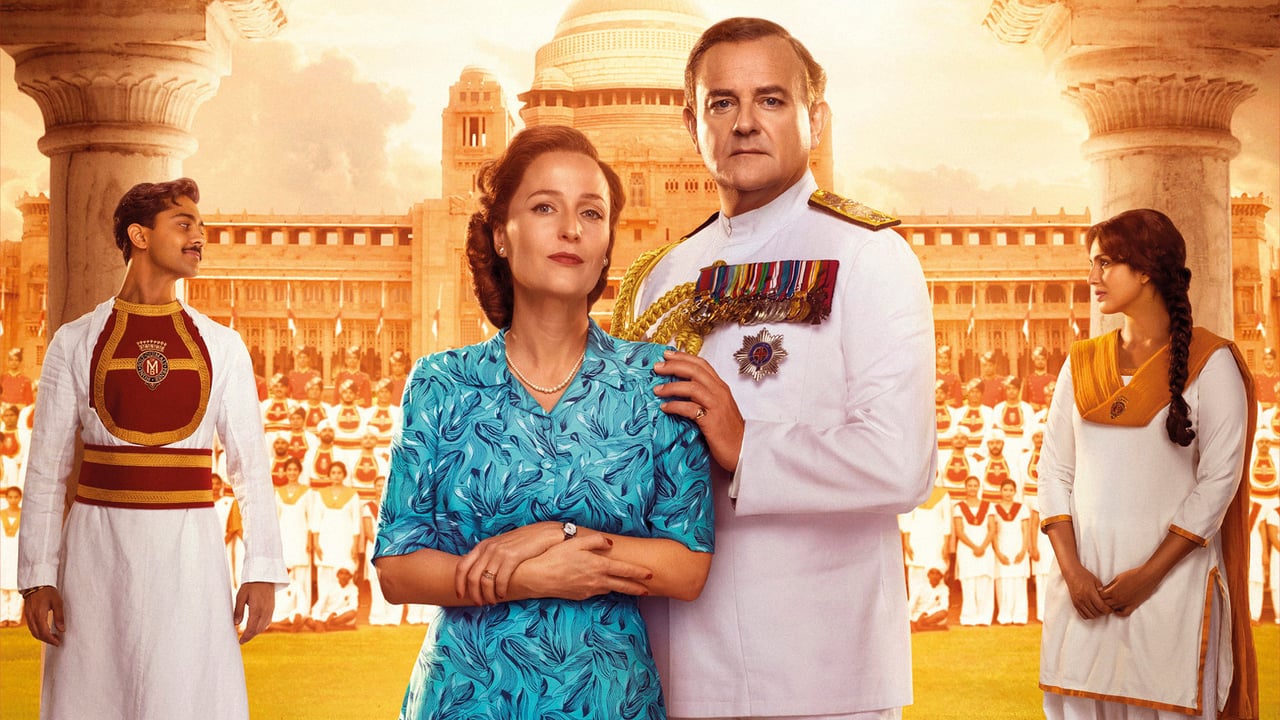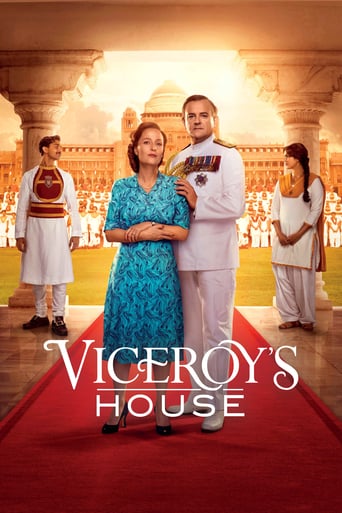

Charming and brutal
... View MoreThe film may be flawed, but its message is not.
... View MoreThe film's masterful storytelling did its job. The message was clear. No need to overdo.
... View More.Like the great film, it's made with a great deal of visible affection both in front of and behind the camera.
... View MoreA history lesson but a good one. Gurinder Chada's "Viceroy's House" is about the British withdrawl from India and the eventual partition of the country and it's a highly intelligent picture, full of good talk. In order to sell it to a wider market there's a 'Romeo and Juliet' style love story between two young Indians that makes up a fairly substantial subplot though it is the divisions that exist between the Hindu and Muslim staff that provides the film's real interest.Cast as Viceroy Lord Mountbatten, Hugh Bonneville brings more than a touch of Downton Abbey to the Viceroy's House though Gillian Anderson is outstanding as Lady Edwina while the entire supporting cast deserve kudos. Hardly likely to set the multiplexes alight on a Saturday night this is still well worth seeking out.
... View MoreIf you saw something similar in a high school world history class it would be interesting and effective. As a theatrical movie it misses the mark. It's 1947 time to grant India it's independence but there is a social, religious problem. The telegraphed answer is two countries.The movie is poorly writing and directed with way too many dialogue driven scenes. People sit around and talk about what is happening. On more then one occasion the question is asked and answered by throwing down the newspaper with the dramatic answer. The only time the movie was visual was the last few minutes showing rather then talking about the refugee issues.The house in the title serves as a metaphor for the division of the country with the silver flat wear being proportionately divided. Other scenes in the house seemed forced. The movie is in limited release and available on home platforms. No need to see this in a theater. Free is almost too much to pay for one.
... View MoreHad uninteresting, dull characters. Music was annoying and inappropriate. Length was too long. Weak romance attempt. Boring dialogue. Tiring political discussions pondering to those who pretend Hollywood can be informative. If you're too lazy to read a history book, desperate for something to do, don't care about substance or quality filmmaking, will watch anything, and remain stubbornly/falsely positive about what you spend your money on, (and have $12 to blow,) you'll probably love this movie.
... View More"Our time frame for leaving won't work!" Lady Mountbatten (Gillian Anderson) Some would say the final partition of India creating Pakistan never worked, albeit a solution to the violence between Muslims, Hindus, and Sikhs was needed with the pending quitting of Britain from rule in 1947. The historical and humane Viceroy's House takes us nimbly yet sometimes brutally through the Solomon-like assignment of Lord Mountbatten (Hugh Bonneville) to bring peace and partition.Although this fascinating film could be accused of being more Masterpiece Theater than history, it brings home in the best period-piece fashion the almost insoluble task of stopping the fighting among factions and fairly apportioning the sub-continent. Mahatma Gandhi's (Neeraj Kabi) opposition, as he favored a unified continent, was the counterbalance to the raw pain of partition but unrealistic given the prevailing hostilities. The film does not oppressively dwell on the philosophy or the brutality: They are just there as if they always were.Helping the transition is A. R. Rahman's musical score appropriately classical and grave at times and then lightly Indian as the time draws near. Viceroy's House has a workman-like period piece feel to it. It also has a soap-opera like romance between Muslim Aalia (Huma Qureshi) and Hindu Jeet (Manish Dayal), an attempt to provide a figurative representation of the cultural clashes borne of tradition and the impending upending with Britain's leaving.The spiritual presence of Churchill, who ended up being the actual architect of the partition, left an independent Mountbatten to come to Churchill's solution without even knowing about it. The various bloody factions are well-perceived as unavoidable given the massive population and the complex challenges of partition.The oil and coastal-protecting motives are there in muted acknowledgment of the inevitable political background of the largest mass movement of human beings in history. Here is a history worth knowing if only to clarify the prevailing hostility between India and Pakistan and the allure Pakistan has for trouble-prone world powers.If for nothing else, enjoy the period costumes and settings. Downton Abbey would approve.
... View More